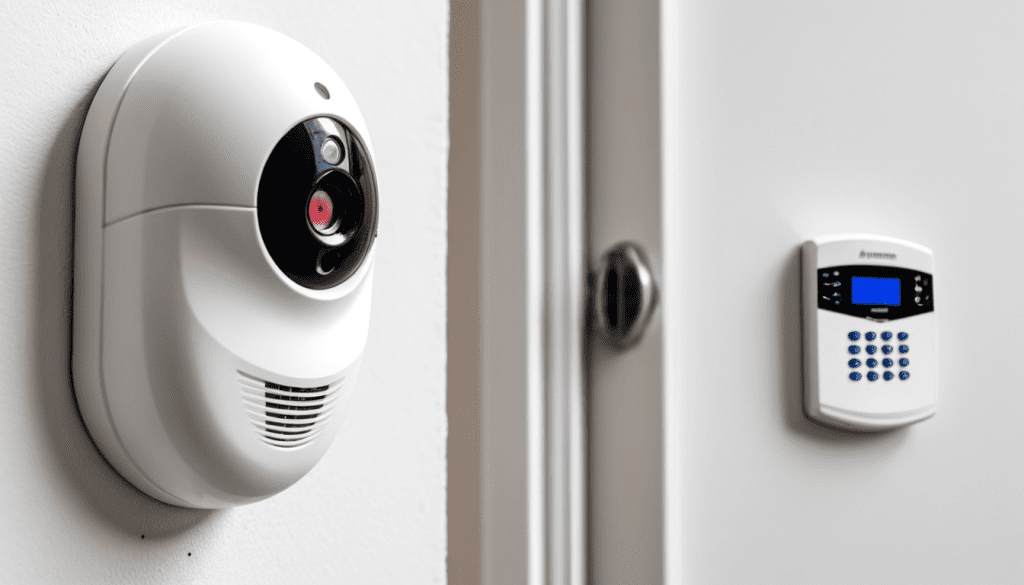How Modern Alarm Systems Are Redefining Safety
In today’s world, where safety and security are paramount, modern alarm systems stand as the silent guardians of our peace of mind. Far from being mere noise-making devices, these sophisticated systems are the culmination of advanced technology and innovative design, working tirelessly to protect what matters most. This comprehensive exploration delves into the multifaceted realm of alarm systems, shedding light on their evolution, key components, integration capabilities, and the undeniable impact they have on enhancing security measures in both residential and commercial settings.

The Evolution of Alarm Systems
Gone are the days of simple bell alarms. Today’s systems are a testament to the leaps in technology and user-focused design.
A Brief History
Tracing the journey from rudimentary systems to today’s intelligent, interconnected solutions that seamlessly blend into our lives.
Technological Advancements
Highlighting the pivotal innovations that have transformed alarm systems, from wireless connectivity to AI-driven analytics.
Anatomy of a Modern Alarm System
Understanding the components that make up a contemporary alarm system is crucial to appreciating its complexity and efficiency.
Control Panels: The Brain
Exploring the central hub of an alarm system, which orchestrates security features and facilitates communication between various components.
Sensors and Detectors
Delving into the array of sensors—from motion detectors to window sensors—that serve as the eyes and ears, providing real-time alerts.
Integration and Smart Security
Today’s alarm systems are not standalone units but part of a broader, integrated smart security ecosystem.
Home Automation Synergy
Examining how alarm systems integrate with home automation technologies, allowing for centralized control of security, lighting, and climate.
Mobile Connectivity
The convenience of managing security settings and receiving alerts directly on smartphones, enhancing control and responsiveness.
Alarm Systems in Action: Residential vs. Commercial
While the fundamental principles remain consistent, the application of alarm systems in residential and commercial settings presents unique considerations.
Tailoring to Residential Needs
Addressing the specific security challenges of homes, focusing on intrusion detection, environmental monitoring, and user-friendly interfaces.
Commercial Security Complexities
Exploring the intricate requirements of commercial alarm systems, including access control, extensive surveillance, and integration with fire and safety protocols.
The Impact of Alarm Systems on Safety and Security
The presence of an alarm system goes beyond deterring intruders; it has a profound effect on the overall security posture.
Deterrence and Crime Prevention
How the mere presence of an alarm system can act as a significant deterrent to potential intruders, backed by statistical evidence.
Emergency Response Enhancement
The critical role of alarm systems in facilitating swift emergency responses, potentially saving lives and property.
Choosing the Right Alarm System
With a multitude of options available, selecting the right alarm system is paramount to ensuring optimal protection.
Assessing Your Security Needs
The importance of evaluating your specific security requirements to determine the most suitable system features and capabilities.
Professional vs. DIY Solutions
Weighing the pros and cons of professional installation and monitoring services against the flexibility and potential cost savings of DIY systems.
Installation and Maintenance: Ensuring Optimal Performance
Proper installation and regular maintenance are key to ensuring that an alarm system functions effectively when needed.
Installation Best Practices
Tips for ensuring a smooth installation process, whether it’s a DIY project or handled by professionals.
Routine Maintenance Checks
Guidelines for regular maintenance to keep the system in top working order, including battery replacements and software updates.
Navigating Challenges and Misconceptions
Despite their benefits, alarm systems are not without their challenges and common misconceptions, which need to be addressed for informed decision-making.
Addressing False Alarms
Strategies to minimize false alarms, which can undermine the effectiveness of alarm systems and lead to complacency.
Debunking Security Myths
Dispelling common myths about alarm systems, such as their perceived complexity or the notion that they’re only for high-end properties.
The Future of Alarm Systems
As technology continues to evolve, the future of alarm systems promises even greater innovations and capabilities.
Emerging Technologies
Anticipating the integration of emerging technologies like biometrics, machine learning, and IoT devices, which will further enhance security measures.
The Shift towards Predictive Security
The potential for alarm systems to not only react to incidents but also predict and prevent them through advanced data analysis and AI.
Conclusion
Modern alarm systems represent the pinnacle of security technology, offering comprehensive protection through a combination of advanced hardware, sophisticated software, and seamless integration with other smart devices. By choosing the right system, ensuring proper installation and maintenance, and staying informed about the latest advancements, individuals and businesses can significantly enhance their security measures. In the ever-evolving landscape of safety and security, alarm systems stand as a beacon of innovation, redefining what it means to feel truly secure in our homes and workplaces.